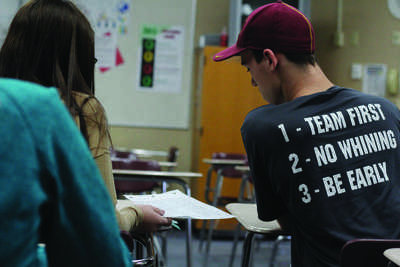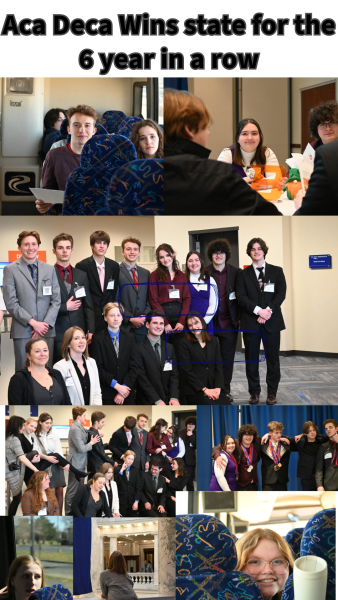DISHONESTY DISCUSSION
Does academic dishonesty cheat the ones who cheat?

Last year a significant number of students from senior English classes plagiarized material from the internet in weekly responses to a book titled “How to Read Literature Like a Professor.”
The magnitude of the academic dishonesty was shocking to Sarah Miles, who teaches dual credit English classes.
“It’s not something that you expect any student to do at any level, but when students are in a dual credit class those are generally the students who […] hold themselves to a high standard,” Miles said.
This is not the only example of academic dishonesty at Sandpoint High School, and the administration and department chairs recently had a discussion on how academic dishonesty should be treated in schools.
The department chairs have been going through a book titled “A Repair Kit for Grading” in their weekly meetings.
The book argues that cheating is a behavioral problem more than an academic problem and should be handled as such.
“Sandpoint High School is not committing to any of these fixes,” CTE Department Chair Alex Gray said. “There may be changes that come from this book, but right now it’s more of a discussion starter.”
Gray is not a proponent of behavioral punishment for academic dishonesty because he thinks that cheating and plagiarism need to leave a mark on a student’s transcript.
“If you get caught cheating at the college level you’re done, and I think we’re doing our students a disservice if we say ‘sorry, I know you just copied that from another student, but don’t do that, and do it again on your own,’” Gray said.
Student Chasselle Wilson thinks that learning experience is lost when students copy work, but she also thinks the definition of academic dishonesty is a variable that can not be defined by only one student.
“I’ve been accused of cheating because I didn’t cite something correctly, and I got a zero on the assignment, so I definitely do believe that’s a matter of opinion,” Wilson said. “I definitely don’t think it’s good if you just take some professor’s work and claim that it’s yours though.”
Wendy Auld, math teacher and department chair, doesn’t feel that the risk of behavioral consequences are enough to deter students from academic dishonesty.
“The reward for cheating is, if you don’t get caught, you might get an A on a test, so there’s a fairly high incentive to cheat,” Auld said. “What’s a day in detention for an entire grade point on a transcript?”
While the incentive for cheating is high, Auld also believes that dropping kids from a lower-level math class on the basis of academic dishonesty isn’t going to help either.
“As a teacher, being fair is not the same as being the same. I have a couple girls who have cheated three times this year. I could drop them from the class with an F, […] but if they get dropped are they going to learn math? No.”
Teachers want students to learn and recognize that academic dishonesty cheats them more than it cheats anyone else, but it continues to happen in high schools across the nation.
“It shocked me, it saddened me, and I think overall I was just really disappointed that students would take the easy way out,” Miles said.
Discussion continues but the choice is ultimately up to students: is academic integrity worth it?

Lauren Sfeir is a Senior and is Photo Editor for the Cedar Post. This is her second year on staff.












